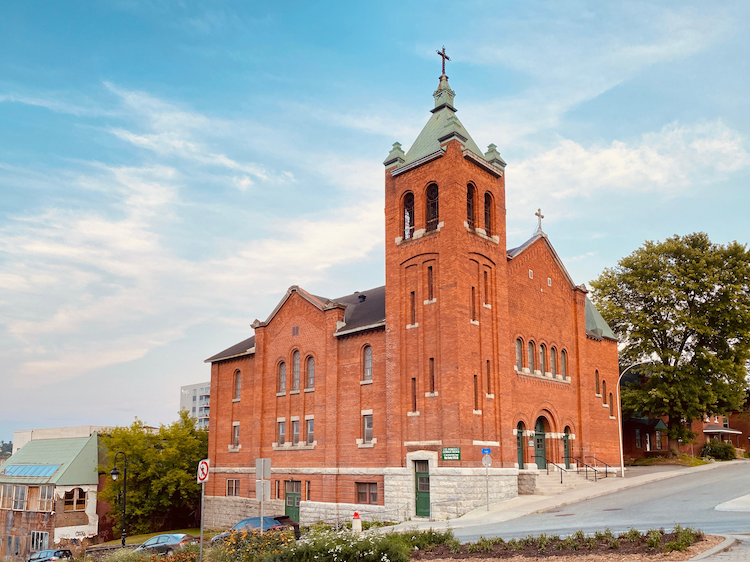Supreme Court to Consider Tax Exemptions for Religious Organizations

The Supreme Court recently agreed to consider Catholic Charities Bureau, Inc. v. Wisconsin Labor & Industry Review Commission. The closely watched First Amendment case involves the availability of tax exemptions for religious organizations and marks the first religious case taken up by the Court this term.
Facts of the Case
Catholic Charities Bureau, Inc. (CCB), along with four of its sub-entities, seek an exemption from having to pay unemployment tax to cover their employees. They assert that they are exempt from coverage under Wisconsin’s Unemployment Compensation Act because they are operated primarily for religious purposes.
Pursuant to Wis.Stat. § 108.02(15)(h), Wisconsin exempts from its state unemployment tax system certain religious organizations that are “operated, supervised, controlled, or principally supported by a church or convention or association of churches” and that are also “operated primarily for religious purposes.” The Labor and Industry Review Commission (LIRC) concluded that CCB and the four sub-entities were not “operated primarily for religious purposes” and thus not exempt from making contributions to the state unemployment insurance system.
Wisconsin Supreme Court’s Decision
CCB and the sub-entities sought judicial review. They argued that they are “operated primarily for religious purposes” because the Diocese of Superior’s motivation is primarily religious, i.e., their charitable works are carried out to operationalize Catholic principles. They further contended that a contrary interpretation would run afoul of the First Amendment to the United States Constitution and Article I, Section 18 of the Wisconsin Constitution.
The Wisconsin Supreme Court reinstated the decision of the LIRC. It held that CCB is not “operated primarily for religious purposes” and thus does not qualify for the tax exemption. Specifically, the court held that CCB’ activities are not “typical” religious activities because it serves and employs non-Catholics. It further found that CCB does not “attempt to imbue program participants with the Catholic faith,” and its services to the poor and needy could also be provided by secular organizations.
Issue Before the Supreme Court
The Supreme Court granted certiorari on December 13, 2024. The justices agreed to consider the following question: “Whether a state violates the First Amendment’s religion clauses by denying a religious organization an otherwise-available tax exemption because the organization does not meet the state’s criteria for religious behavior.”
Oral arguments have not yet been scheduled. An opinion is scheduled before the end of the term in June/July 2025.
Previous Articles
SCOTUS Decision in Bowe v. United States Is First of the 2026 Term
by DONALD SCARINCI on February 5, 2026
In Bowe v. United States, 607 U.S. ___ (2026), the U.S. Supreme Court held that Title 28 U.S.C. § ...
SCOTUS Rules State Can’t Immunize Parties from Federal Civil Liability
by DONALD SCARINCI on January 29, 2026
In John Doe v. Dynamic Physical Therapy, LLC, 607 U.S. ____ (2025) the U.S. Supreme Court held that...
Supreme Court to Address Racial Discrimination in Jury Selection
by DONALD SCARINCI onWhile the U.S. Supreme Court has concluded oral arguments for the year, it continues to add cases t...
The Amendments
-
Amendment1
- Establishment ClauseFree Exercise Clause
- Freedom of Speech
- Freedoms of Press
- Freedom of Assembly, and Petitition
-
Amendment2
- The Right to Bear Arms
-
Amendment4
- Unreasonable Searches and Seizures
-
Amendment5
- Due Process
- Eminent Domain
- Rights of Criminal Defendants
Preamble to the Bill of Rights
Congress of the United States begun and held at the City of New-York, on Wednesday the fourth of March, one thousand seven hundred and eighty nine.
THE Conventions of a number of the States, having at the time of their adopting the Constitution, expressed a desire, in order to prevent misconstruction or abuse of its powers, that further declaratory and restrictive clauses should be added: And as extending the ground of public confidence in the Government, will best ensure the beneficent ends of its institution.





